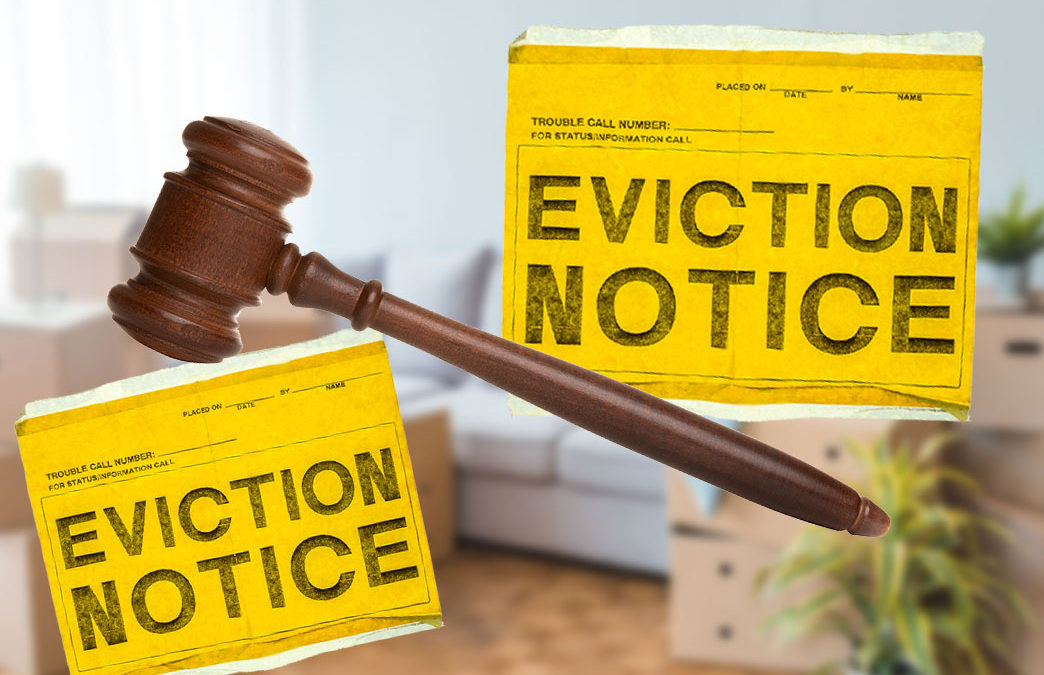As if the health issues haven’t been bad enough, Covid has taken an enormous toll on the rental housing market. Sure, tenants haven’t been put out in the streets, but if Landlords can’t be paid and they can’t evict, at some point they will be out on the streets. Here is the latest legal update on Covid housing laws in California s of the time of the Article relating to the subject of Tenants how have failed to pay rent.
In a nutshell, Covid has caused the eviction laws to explode! As if Federal, State, County and City laws aren’t enough to deal with, what about Emergency Orders at all various levels, all expiring at different times!
So… Assume a landlord wants to evict a tenant for not paying the rent—Here are your possible legal issues:
1. Under FEDERAL law, is there any federal moratorium on evictions?
2. Under STATE law, has the landlord given the proper 15-day notice?
3. Under State law, does the 15-day NOTICE have ALL the elements required by CCP 1161?
The notice to pay rent or quit must contain the name, telephone number, and address of the person to whom rent payment shall be made, and if payment may be made personally, the usual days and hours that person will be available to receive the payment…. If the notice does not contain all the required information, judgment must be reversed. (Foster v. Williams (2014) 229 Cal.App.4th Supp. 9.
4. Under State law, was the notice SERVED correctly?
5. Under State law, did the landlord provide the tenant with a DECLARATION of COVID-19 Related Financial Distress?
6. Did the tenant return the Declaration of COVID-19 Related Financial Distress? (If so, the landlord may be in the wrong court.)
7. Is the property subject to a LOCAL RENT STABILIZATION ORDINANCE (RSO) and the landlord doesn’t realize it?
a. Was the property built before the local RSO was enacted? (Different years—circa 1978 for Los Angeles, West Hollywood, Beverly Hills and Santa Monica; circa 1995 for Culver City, Inglewood, unincorporated Los Angeles County.). If so, then analyze where the property is subject to the local RSO.
b. Generally, under most local RSOs, if there is more than one unit on a lot, and the oldest unit was built prior to the date the local RSO was enacted, all units on the lot are subject to the RSO.
c. It’s important to really analyze this point. Often, landlords split up single family houses (not generally subject to the RSO) into duplexes or triplexes and inadvertently create rent-stabilized units. Even if a landlord rents out rooms to different tenants in a single-family house, each room (unit) will be subject to the local RSO. (Chun v. Del Cid (2019) 34 Cal.App.5th 806.)
d. If the unit is not registered with the local housing department, this will generally be a defense to eviction, and local ordinances contain many other technical defenses.
8. Is the property subject to a LOCAL COVID-19 EMERGENCY ORDER relating to payment of rent? (If so, the rent might not be due yet, even though under State law evictions for non-payment of rent can proceed in February 2021.)
9. Is the property subject to an emergency order that has nothing to do with COVID-19? For instance, there is an emergency order in effect relating to price-gouging and WILDFIRES that prevents all rent increases above 10% for all rental properties in the Los Angeles County between January 1, 2020 and December 31, 2021. Has the landlord raised the rent more than 10% during that period? If so, the eviction fails because the landlord has not demanded the correct amount of rent. (Code Civ. Proc., § 1161, subd. 2.)
10. Is there a GOVERNMENT ORDER requiring the landlord to make repairs that is outstanding? If so, the landlord may be barred from asking for rent at all. (Civil Code, § 1942.4.)
11. Is there another reason why the landlord is asking for too much rent? For instance, has the landlord not made necessary repairs? If the landlord is in BREACH OF THE IMPLIED WARRANTY OF HABITABILITY, the landlord may be asking for too much rent (in which case the eviction process must be started all over again from scratch). (Green v. Superior Court (1974) 10 Cal.3d 616.)
12. Is the landlord in violation of some other LOCAL LAW, e.g., a local tenant harassment ordinance?
13. As if this isn’t enough to analyze, remember that the rules are being changed and expiring all the time. For example, if your property is in the City of Los Angeles, you cannot evict anybody until the Mayor declares the emergency to be over… and who knows when that’ll be?
So Landlords, do you understand why a good eviction attorney is now your best friend? This is all so convoluted even the judges are having trouble with it. But don’t give up, just hire competent legal representation. We know how hard this is on you Landlords who depend on rental income just like restaurants and hair salons depend on customers. That’s why we offer a Landlord Relief Program… because nobody else is.



Recent Comments